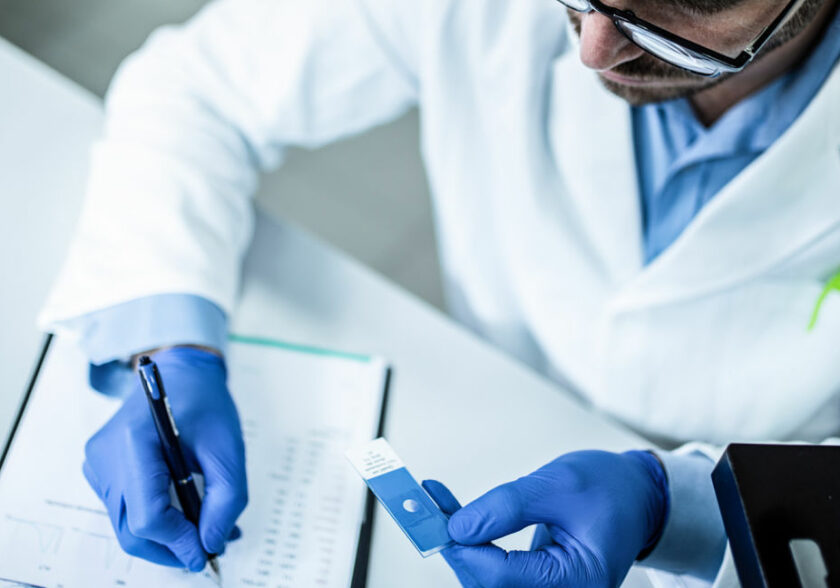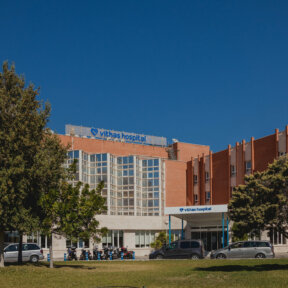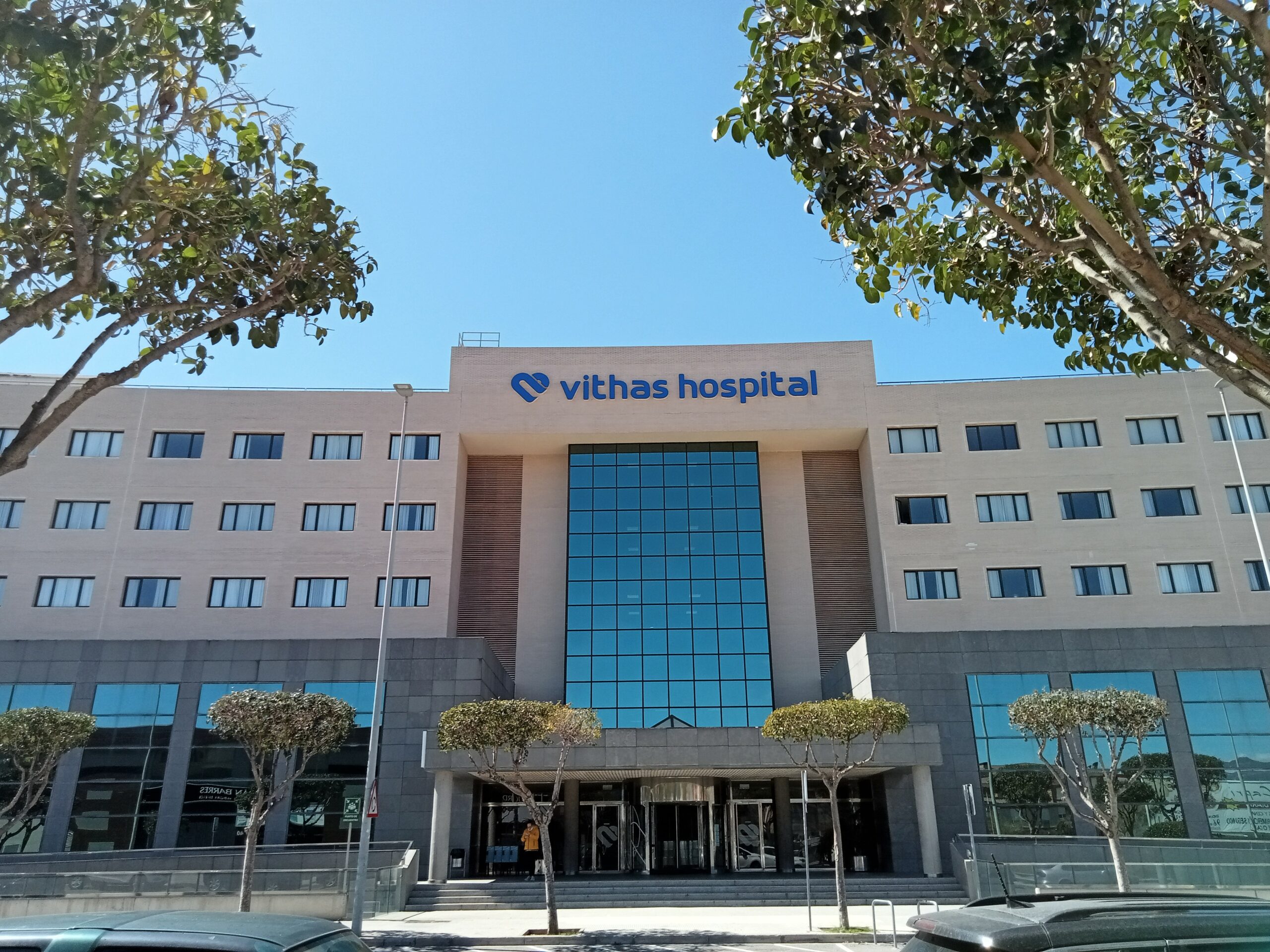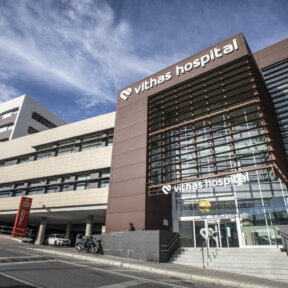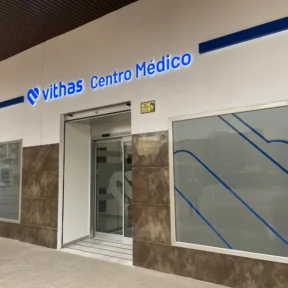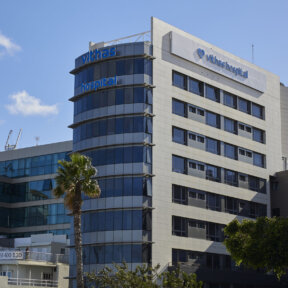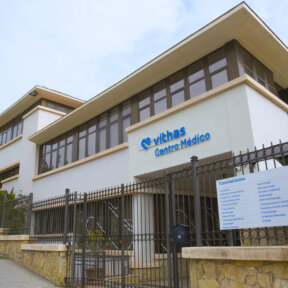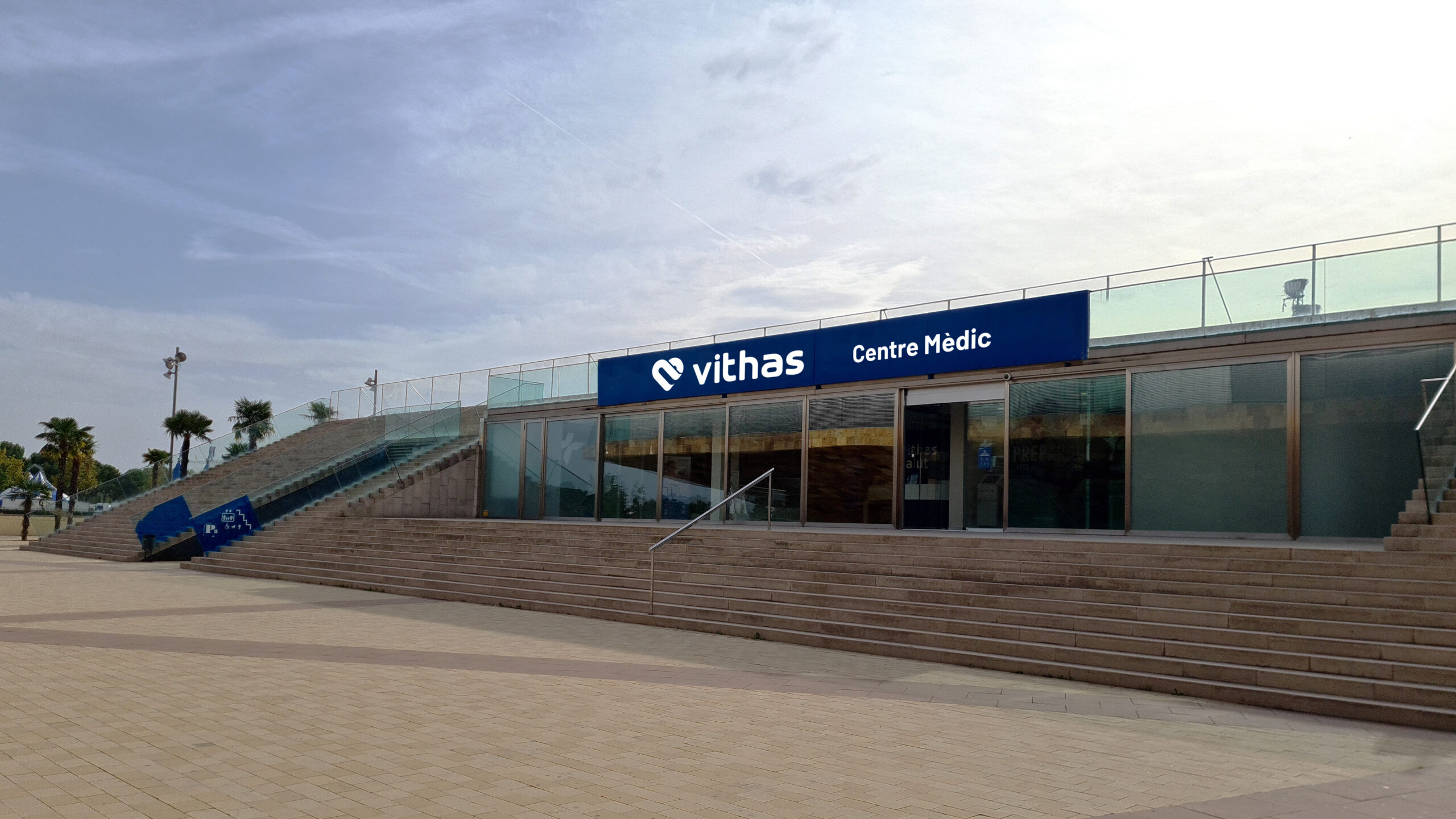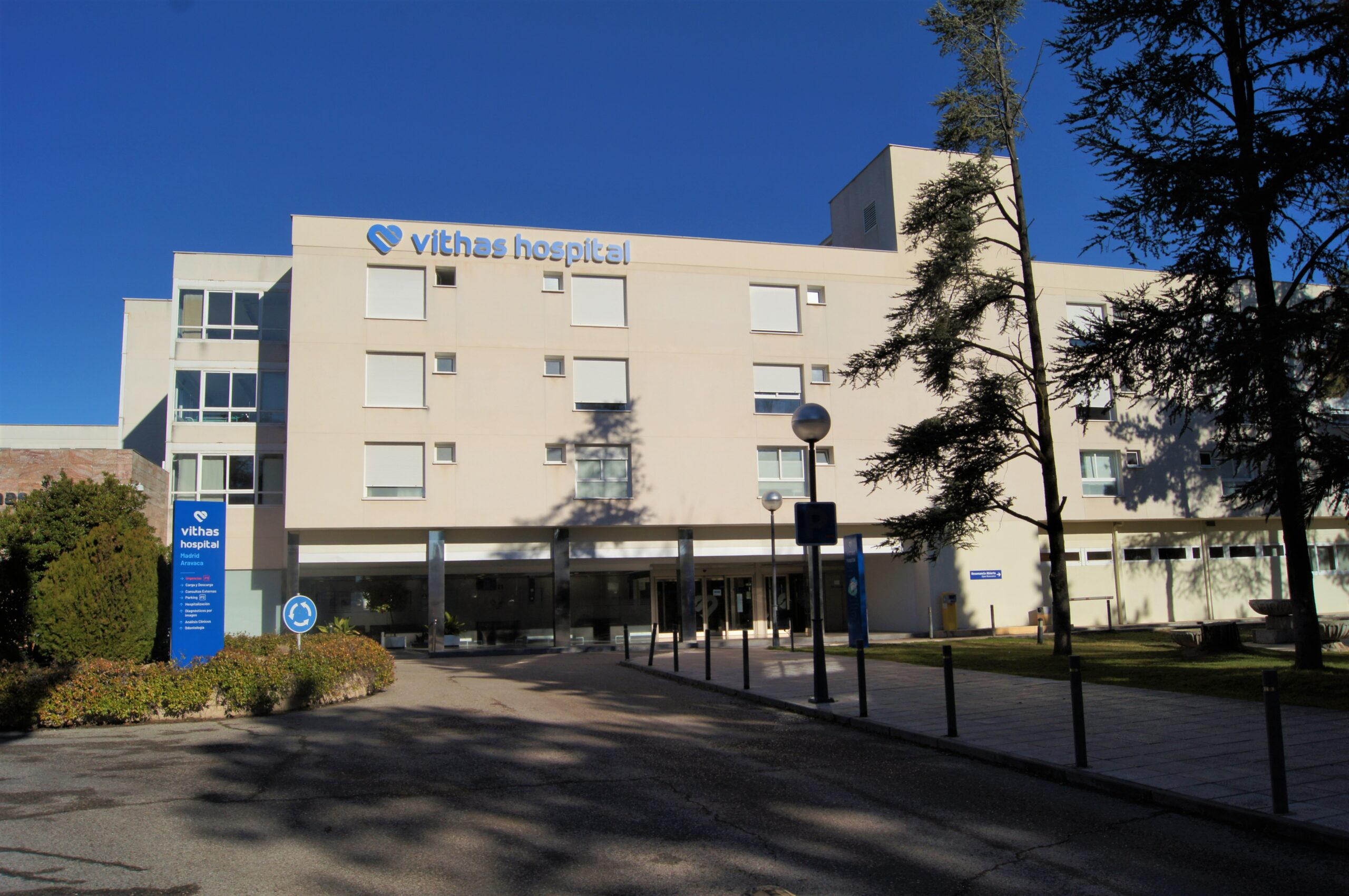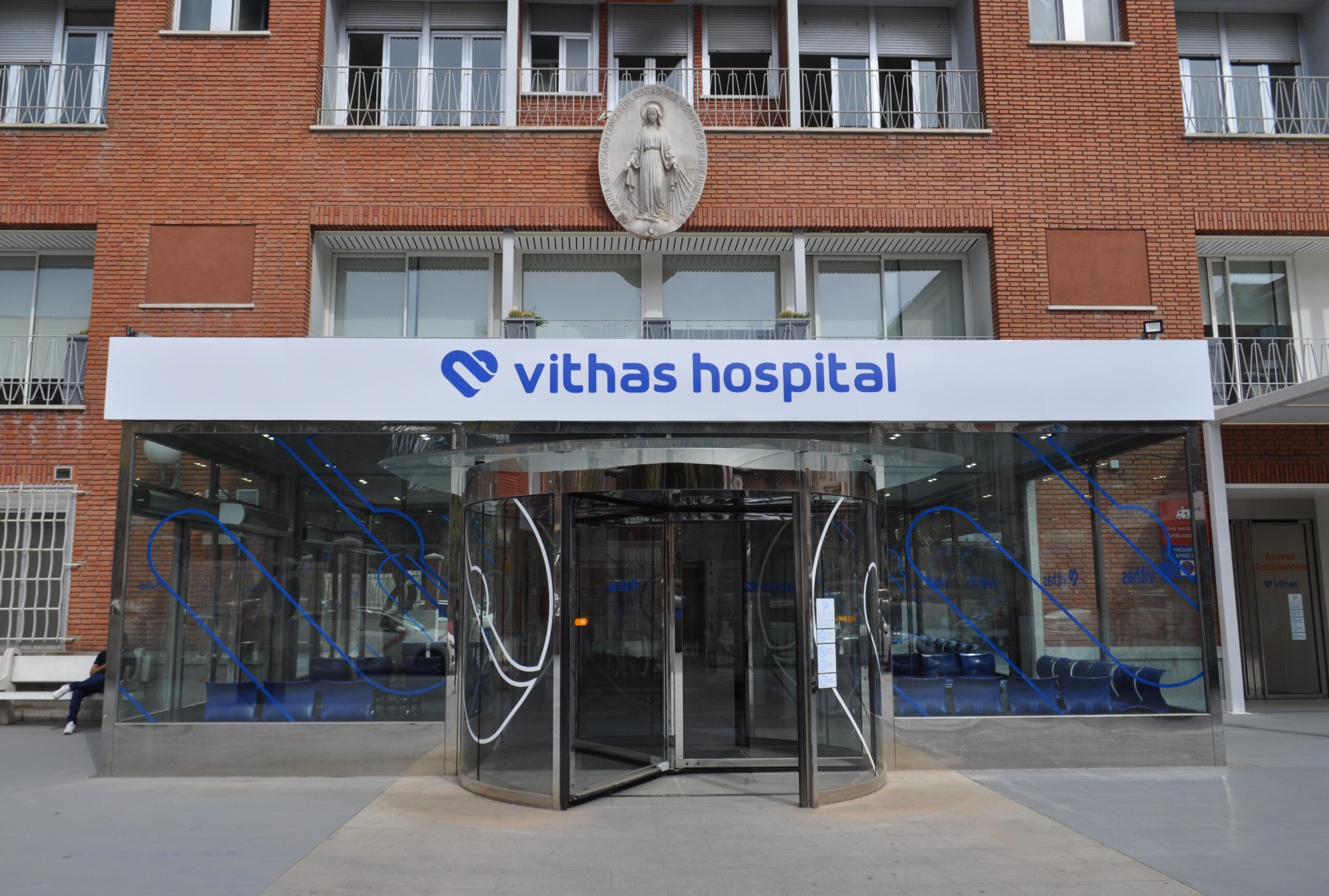What is haematology and haemotherapy?
The Vithas Haematology Clinic treats blood conditions or diseases by studying the diseases of the blood and blood-producing organs to prevent, diagnose and treat them.
It also deals with the analysis of blood components, such as red blood cells, white blood cells, erythrocytes and platelets or leukocytes, among others, as well as their characteristics, such as coagulation.
This speciality is also concerned with achieving a normal state of blood and blood components. This clinic specialises in curing conditions related to blood, bone marrow, the spleen and lymph nodes.
The staff of the Haematology Clinic work with the aim of offering patients quick and personalised care, with a global, efficient and innovative approach, both in hospital, for inpatients and the interconsultation, and outpatients.
In addition to the work carried out in outpatient consulting rooms, haematology serves other medical specialities, offering comprehensive care that covers the entire haematological pathology, with the exception of patients with acute leukemia or young patients in need of a transplantation.
Haematology has an area of haematotherapy, which deals with all the activities related to blood transfusions.
Which patients is it for?
The Haematology Clinic deals with all haematology studies. It also assesses preoperative exam results with basic coagulation disorders or hereditary disorders.
Haematology studies and treats blood disorders (anaemia, thrombopenia, leukopenia), carries out cytological, immunological, cytogenetic and molecular studies both in peripheral blood and bone marrow, thrombophilia (or hypercoagulability) studies in patients with personal and/or family history of thrombosis and, during pregnancy, we study and treat bleeding diathesis, either hereditary or acquired.
You should go to the Haematology Clinic if you have not been referred by another doctor when you have any of the following symptoms:
- Excessive pallor
- Hair loss due to anaemia
- Excessive tiredness
- Rapid blood loss from cut
- Weight loss for no apparent reason
- Fever for no apparent reason
- Inflammation
- Pain in the lymph nodes
- Poor circulation, among others
- Persistent growth of nodular lymph nodes (small pockets) in either the neck, armpit, or groin region
- Increase in the size of abdominal organs
- Spontaneous bleeding, bruising of the body, nosebleeds or gums (epistaxis, gingivorrhagia)
- Repetitive infections
- Low spirits
Main conditions and diseases
The Haematology Clinic works closely with the surgical units at our centres.
Haematology is of vital importance in preoperative consultations, for which an internal system has been developed to perform tests and studies of patients before assessing their coagulation, with the aim of guaranteeing the treatment and safety of the process, both for the professional and for the patient. This is particularly relevant in major surgeries that put patients in a vitally compromised position.
In haematology, another of the most common conditions treated is anticoagulant treatment, working with new drugs, such as oral anticoagulants.
As a differential factor, haematology has been working for more than fifteen years on issues related to oral anticoagulation, making family members and patients aware of their necessary collaboration and commitment to treatment for its success.
The anticoagulants used in this type of treatment are classed as dangerous drugs, since if the prescriptions and medical follow-ups are not followed properly they can cause subsequent complications such as thrombosis, bleeding or stroke, so achieving patient awareness and involvement in the treatment is vitally important.
Haematology has a blood transfusion service that has its own practice, in which nurses specially trained in haematology complete the patient’s medical history through a personal interview. This practice is very useful for pregnant women with certain risks during pregnancy or group incompatibilities.
If any problems are found, this makes it easier to notify the doctor requesting the blood reserve, thus avoiding any complications.
Our haematology service also works in collaboration with medical oncology on chemotherapy treatments carried out in the day hospital. The clinic works with oncologists to provide better care to patients who have had to be treated with two or three cycles of chemotherapy.
It also carries out immunohaematological studies, diagnosis and treatment of oncohaematological processes, such as lymphoma, myeloma, myelodysplastic and lymphoproliferative syndromes, etc., as well as others dependent on the day hospital, such as cytostatic studies, immunotherapy studies, administration of blood products, phlebotomies, intravenous iron, haemostatic agents and colony growth stimulants, among others.
Cases of patients with neoplastic diseases are taken to the Tumour Board where they are approached from an interdisciplinary perspective, involving haematologists, surgeons, onco-haemopathologists and oncologists.
In addition to chemotherapy treatments, our Haematology Services perform other types of treatments in our centres’ day hospitals, such as substitution treatments, intravenous iron or treatments with immunoglobulin.
In a schematic way, these are the main conditions treated:
- Bone marrow failure
- Erythrocyturia Anaemia clinic
- Leukocyte disorders
- Oncohaematological pathology:
- Acute and chronic leukemia
- Chronic myeloproliferative syndromes
- Other myeloproliferative syndromes
- Multiple myeloma and monoclonal gammopathies
- Phagocytic mononuclear system conditions
- Hodgkin and non-Hodgkin lymphomas
- Haemostasis (coagulation) and thrombosis
- Transfusion reactions
- Therapeutic Procedures
- Antithrombotic treatment
- Haemostasis
- Immunobiotherapy and cytokines
- Chemotherapy
- Diagnostic Procedures
- Diagnostic cytopathology clinic
- Lymphocyte populations
- Immunophenotype in blood and bone marrow
- FISH techniques and cytogenetics
- Minimum residual disease (MRD) study
- Molecular biology
- Erythropathology clinic
- Haemostasis and thrombosis clinic
- Thrombophilia studies
- Transfusion Service
- Transfusion of deleucotised blood products (red blood cells, fresh plasma and platelet pool)
- Immunopathology laboratory: methods and techniques
- Apheresis clinic. Therapeutic applications.
- Therapeutic plasmapheresis
- Therapeutic phlebotomy
- Haemolytic disease of the newborn
- Exchange transfusion
- Autotransfusion
Main diagnostic resources and technology
The laboratory does not just perform blood studies, but much more than that, it’s related to the clinical laboratory studies. Laboratory haematology comes from immunohaematology, immunology and cytogenetics. New units are now being created that analyse all these types of needs to provide appropriate coverage to other medical specialities.
Some of the most common tests are:
- Erythrocyte and haematocrit count
- Leukocyte count
- Haemoglobin determination
- Leukocyte formula (differential leukocyte count)
- Platelet count
- Volume of red blood cells in the haematocrit
- Haemoglobin (HB) concentration. Haemoglobin is the protein in red blood cells that carries oxygen
- Differential white blood cell count
- Red blood cell index (measurements)
- Complete haemogram (blood count)
- Blood film
- Automated basic haematology
- Haemato-oncology
- Homeostasis
- Immunohaematology
Our Haematology Clinic works with portable coagulometers, enabling us to provide a faster service. The equipment, which is no larger than a smartphone, gives us the blood thickness parameters with just a drop and in just 15 or 20 seconds.
This makes it possible for specialists to set the patient’s treatment and home routine then and there, without the need for the nurse to send the sample over to your general practitioner, significantly speeding up patient service.
Main treatments
The haematology clinic deals with treatments related to conditions and diseases of the blood and organs involved in blood production. Some of the most common treatments are:
- Iron deficiency anaemia
- Haemoglobinopathies
- Platelet and air extraction disorders: including idiopathic thrombocytopenic purpura (ITP), thrombocytopenic purpura, haemophilia, and Von Willebrand disease
- Bone marrow cancer and disorders
- Marrow stem cell transplantation
- The clinic also offers various treatments for haematological disorders:
- Dietary changes
- Oral iron preparations
- Blood disorders such as megaloblastic anaemia are treated with vitamin B12 injections and folic acid pills
- Anticoagulation therapy to prevent excessive blood clotting
- Therapeutic bleeding is applied in rare cases of polycythaemia or iron overload A drug that is commonly used for iron overload is desferrioxamine
- The various chemotherapies for blood cancer are performed by haematologists
Special services
Vithas offers you high-quality medical care, performing the necessary studies to establish an adequate diagnosis, treatment and follow-up of each patient's specific conditions.
FAQs
Is there a cure for leukemia?
There are many types of leukemia, so we can’t generalise. Every patient is different and every case must be individualised.
That said, fortunately, today many leukemias can be cured, and in some chronic cases it may not even be necessary to start treatment immediately.
Is bone marrow transplant an operation?
No. A bone marrow transplant is more like a transfusion, in which stem cells obtained from bone marrow are introduced into your vein.
These cells are often obtained from the donor’s blood without the need to aspirate them from the bone.
What is an umbilical cord transplant?
Umbilical cord blood is a rich source of haematopoietic stem cells. In an umbilical cord transplant, the blood is used as a source of stem cells, meaning that blood from the umbilical cord is transfused, like in other stem cell transplants.
Should anaemia always be treated with iron?
No. There are many types of anaemia and in some cases it can be harmful to take iron. However, iron-deficiency anaemia is the most common. 60% of women of childbearing age have iron deficiency that often causes anaemia without them knowing it, causing fatigue which may seem normal to them. In these cases, after diagnosing it, iron should be given in appropriate doses. When iron is not tolerated orally, it can be given intravenously.
What are platelets?
Platelets are blood cells that prevent or cut off bleeding. When platelets are decreased, there may be an increased risk of bleeding. They can also increase in some diseases, putting you at higher risk of blood clots.
What does it mean if my white blood cells are low?
White blood cells or leukocytes have an important mission in defending the body against infections, for example. But having a decreased number of white blood cells doesn’t necessarily mean your defences are low. When this number is outside the normal range, you may need to undergo more studies to help us assess your defences before beginning treatment.


